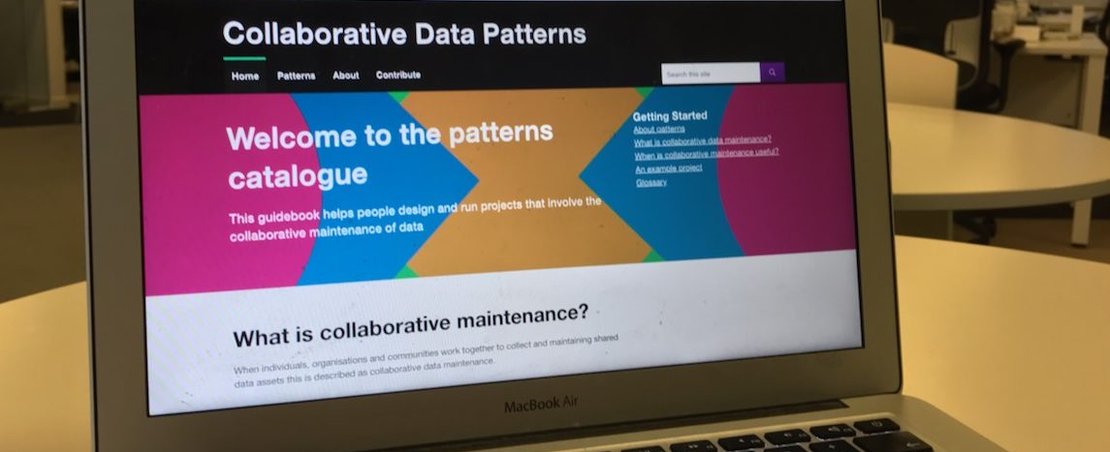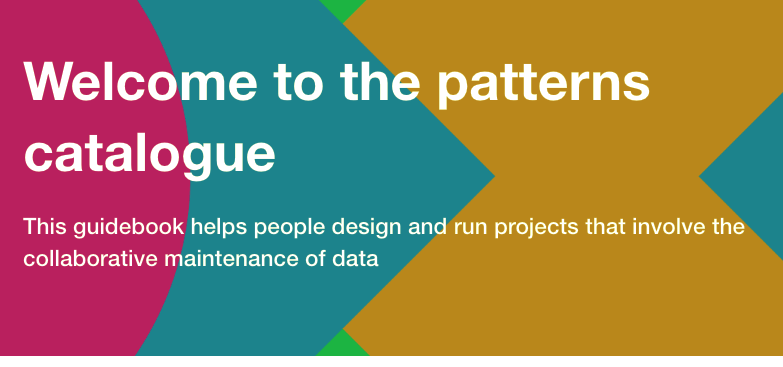
To help people design and run projects that involve collaborative data maintenance – like OpenStreetMap and Wikidata – we’ve created the Collaborative Data Guidebook, an online resource including examples, practical solutions to common problems, and useful resources
As part of our R&D project, Collaborative data maintenance, we hypothesised that we could collate learnings from successful open data curation projects to help new services maintain data assets across the data spectrum.
Collaborative approaches to maintaining data can help to improve data quality, reduce costs and create sustainable data infrastructure. Our hope is that this guidance can help service and product designers across the public and private sector to create new applications that use collaborative approaches.
This work aims to support the ODI mission to build an open, trustworthy data ecosystem, and help create a stronger data infrastructure that is supported by independent stewardship, is built on open standards and relies on common reference data.
Building the guide
We started the project by carrying out some desk and user research to understand what makes projects like OpenStreetMap, Wikidata, MusicBrainz and others successful.
But most importantly we’ve spent time contributing to a range of projects to experience how they onboard new users and create workflows that support the collection and maintenance of data.
Inside the guidebook
The Collaborative Maintenance Guidebook includes:
- a background on collaborative maintenance, including a review of how work can be shared across collaborators and a summary of the benefits
- examples of when and where collaborative maintenance might be useful to help identify when to use the approach
- a worked example and some guidance to help support the design of new projects
Supporting this background material is a collection of design patterns that capture our learning from existing projects. The patterns cover a wide range of suggestions for ways to design workflows; encourage contributions to keep data up to date, fix errors and increase coverage; and manage a community of contributors. We’ve distilled these into a set of project types that summarise typical uses of collaborative maintenance.
Get in touch
As this is an alpha release, we’d love to get feedback. The website includes instructions for how you can contribute, fix bugs or suggest improvements. We’d love to know what you think of the guidebook, so drop us a line at [email protected] and share your thoughts.
If we can help you apply the guidance to a current or future project then let us know.
